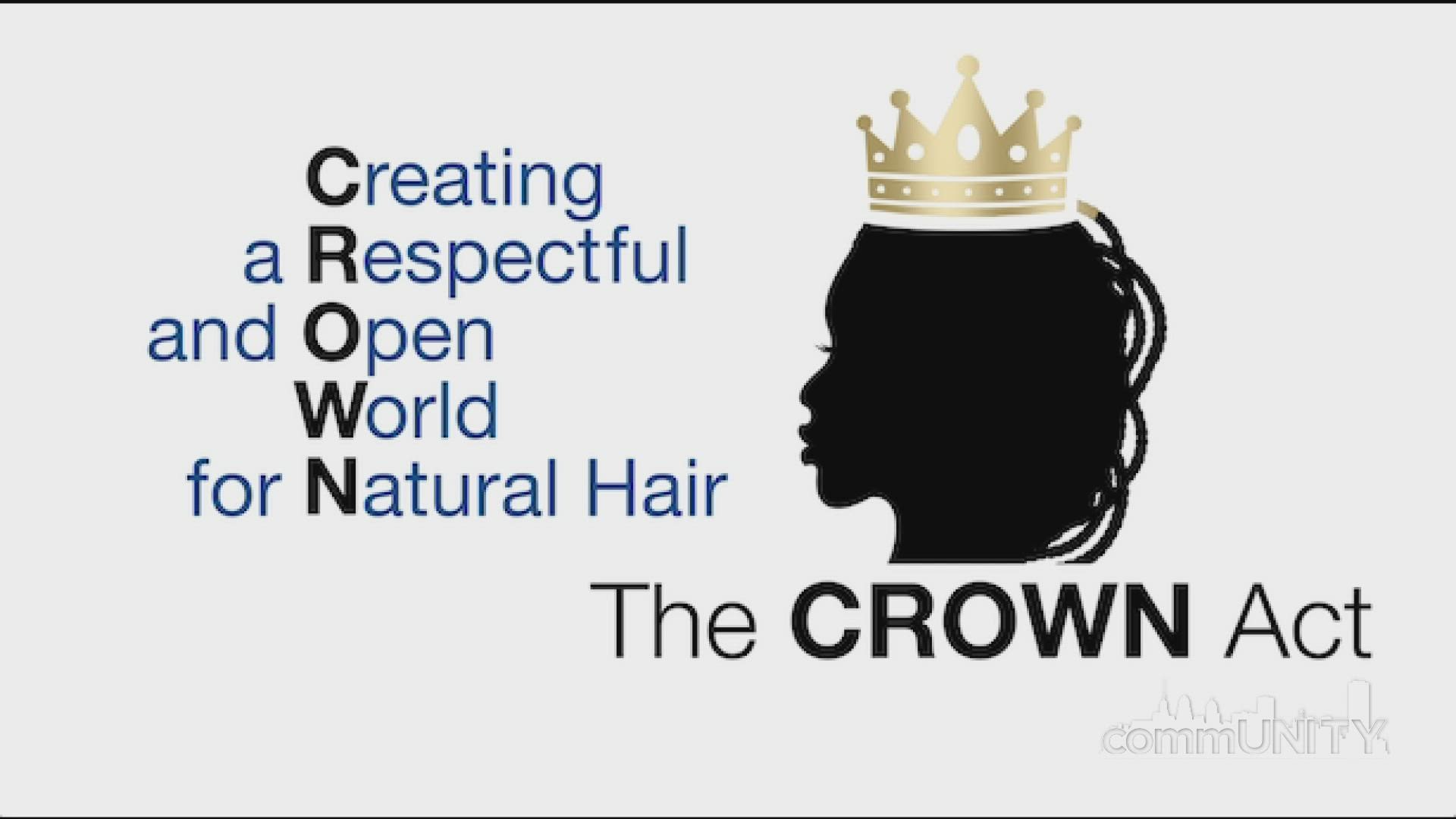BUFFALO, N.Y. — Have you heard of the CROWN Act? It stands for "Creating a Respectful and Open World for Natural Hair."
The purpose is to prohibit discrimination based on an individual's texture or style of hair. There is a bill that passed in the U.S. House that would ban race-based hair discrimination in employment and for those participating in federally assisted programs, housing programs, and public accommodations.
The bill would also protect against bias based on hair texture and protective styles, including braids, locs, twists, Bantu knots, and Afros.
It must be approved by the U.S. Senate before the President can sign it.
Rep. Bonnie Watson Coleman (D-NJ) said "it doggone sure is discriminatory to deny someone employment housing or public accommodations because of the way they are wearing their hair."
More than a dozen states, including New York, have already passed legislation aimed at banning race-based discrimination of hair in employment.
For many years, implicit and explicit biases against natural hair have been an issue for people of color in the workplace.
The CROWN Act highlights years of workplace hair discrimination.
When Channel 2's Claudine Ewing visited Savannah, she was able to see an exhibit at the Savannah African Art Museum based on hair.
The exhibit was Roots, Hair, Culture and History. Exploring the Hair and cultures of west and central Africa.
Lisa Jackson, museum community outreach liaison, said "so much controversy is over our hair, but the interesting thing is, is the hair is extremely important in African culture, extremely important, so no wonder that it becomes so important to us different styles and what we do with it."
Hair is a topic of conversation amongst all women, but when it comes to hair of women of African descent, conversations have been laced with controversy, be it about European-based society's views about hair beauty, or about the diverse hair choices Black women wear today.

